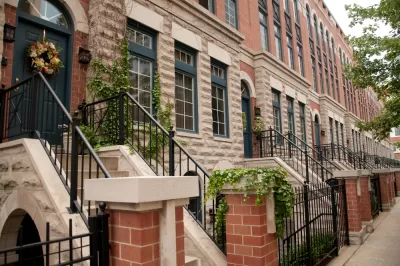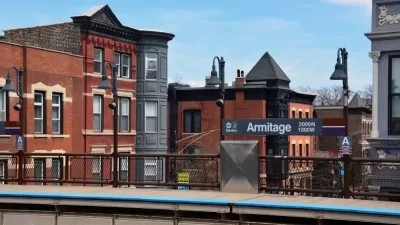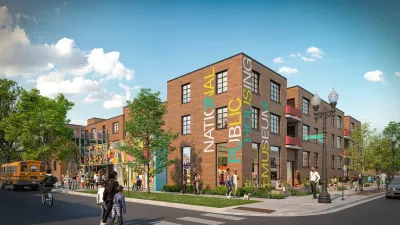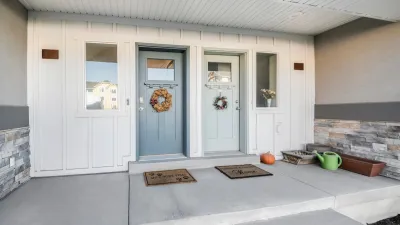A demolition fee designed to preserve affordable housing in older buildings has had some impact on the city’s housing supply.

Writing for Bloomberg CityLab, Mackenzie Hawkins describes an innovative tool wielded by anti-gentrification activists in Chicago’s Logan Square neighborhood: “a pilot ordinance that charges developers a fee of at least $15,000 for tearing down existing buildings.”
The ordinance is part of a larger group of policy recommendations being pushed by community organizers aimed at preserving affordable housing, much of which is found in Chicago’s iconic “two-flat” homes, a classic example of affordable ‘missing middle housing.’ According to Hawkins, “The loss of those units is a key displacement indicator,” making their preservation more urgent.
The demolition fee is now one of two long-term measures enacted by Chicago aldermen to preserve affordable housing. The other is “a permanent anti-deconversion ordinance” that requires developers to maintain density and apply for a permit to build single-family homes on blocks with two-flats.
The policies have yielded some positive results. “In the year after the anti-deconversion ordinance went into effect, followed two months later by the fee, the city found no deconversions in permit applications in the covered areas, compared to a reduced rate in other parts of the city. And there was a substantial drop in residential demolitions: almost 90% in The 606 area, and 40% in Pilsen, slightly outpacing slowdowns in other areas.”
The article outlines other challenges to preserving affordable two-flats, including the high cost of repairs that drive many property owners to sell and developers to demolish old buildings. Meanwhile, city programs to assist with repairs are unable to meet demand. Hawkins notes that the city is also encouraging ADU construction as another avenue to building more housing units, but much of ADU development is concentrated in the city’s wealthier neighborhoods.
FULL STORY: Chicago Taps Brakes on Gentrification With a Tax on Teardowns

Alabama: Trump Terminates Settlements for Black Communities Harmed By Raw Sewage
Trump deemed the landmark civil rights agreement “illegal DEI and environmental justice policy.”

Study: Maui’s Plan to Convert Vacation Rentals to Long-Term Housing Could Cause Nearly $1 Billion Economic Loss
The plan would reduce visitor accommodation by 25% resulting in 1,900 jobs lost.

Planetizen Federal Action Tracker
A weekly monitor of how Trump’s orders and actions are impacting planners and planning in America.

Wind Energy on the Rise Despite Federal Policy Reversal
The Trump administration is revoking federal support for renewable energy, but demand for new projects continues unabated.

Passengers Flock to Caltrain After Electrification
The new electric trains are running faster and more reliably, leading to strong ridership growth on the Bay Area rail system.

Texas Churches Rally Behind ‘Yes in God’s Back Yard’ Legislation
Religious leaders want the state to reduce zoning regulations to streamline leasing church-owned land to housing developers.
Urban Design for Planners 1: Software Tools
This six-course series explores essential urban design concepts using open source software and equips planners with the tools they need to participate fully in the urban design process.
Planning for Universal Design
Learn the tools for implementing Universal Design in planning regulations.
Caltrans
Smith Gee Studio
Institute for Housing and Urban Development Studies (IHS)
City of Grandview
Harvard GSD Executive Education
Toledo-Lucas County Plan Commissions
Salt Lake City
NYU Wagner Graduate School of Public Service





























